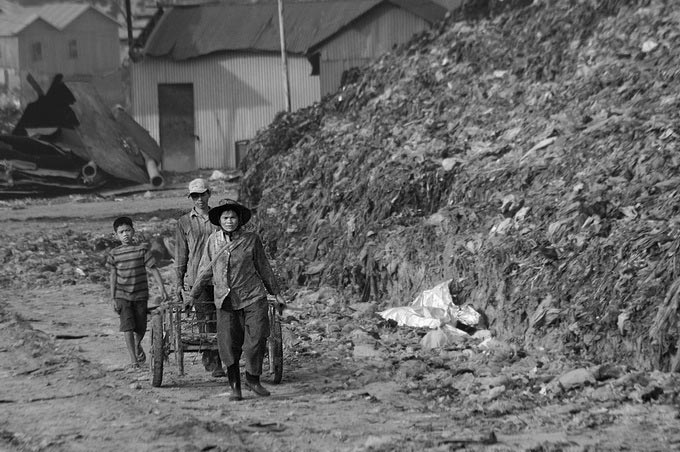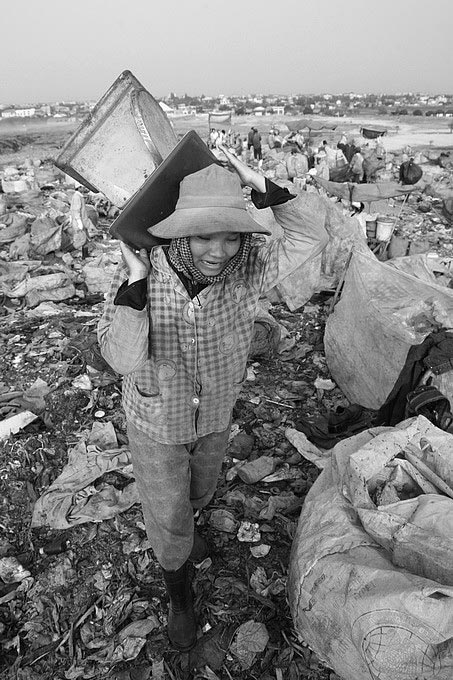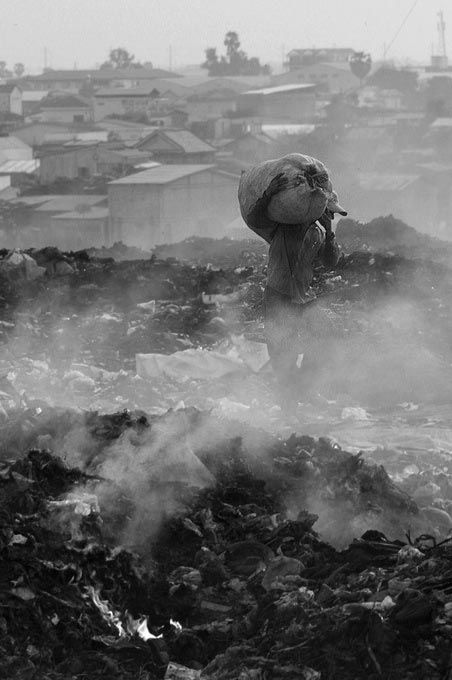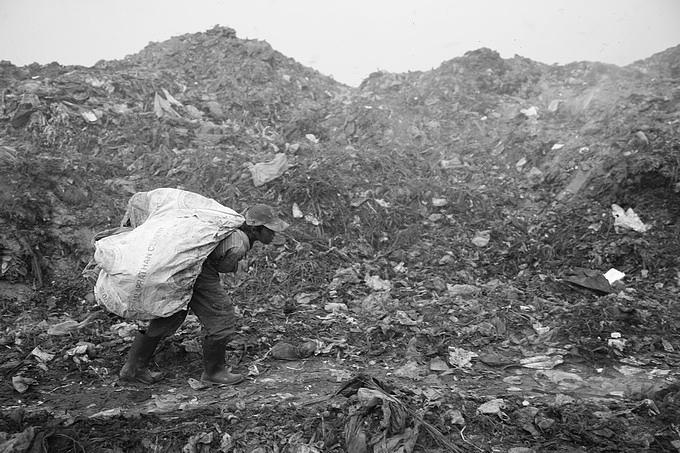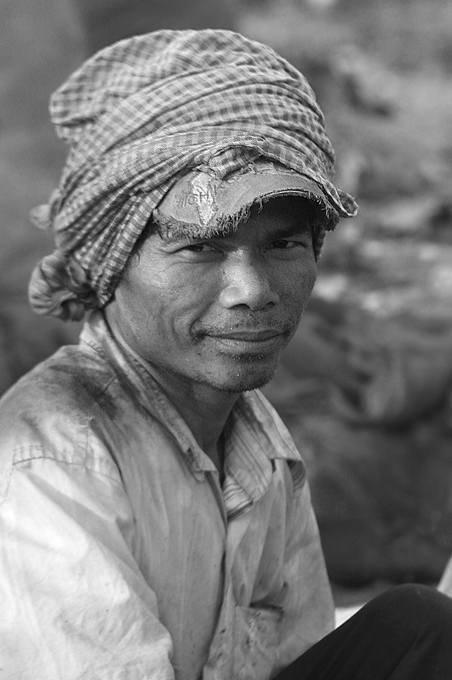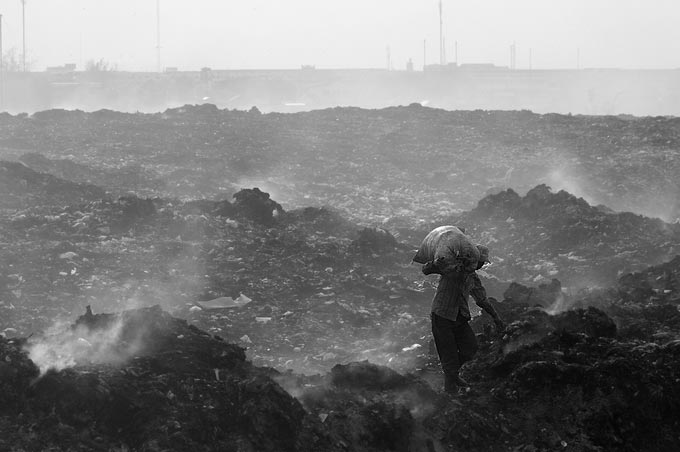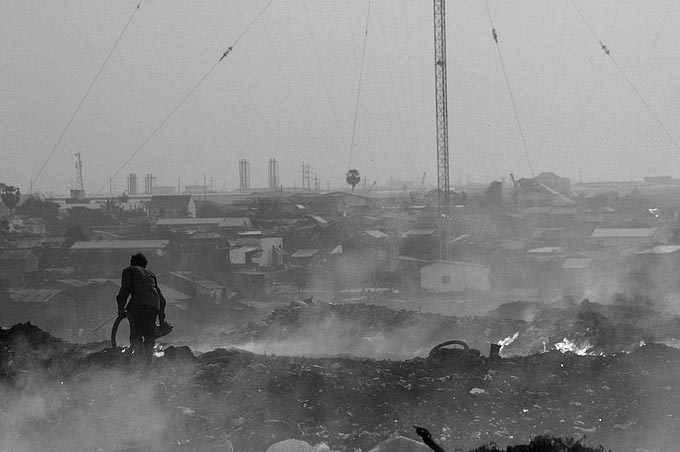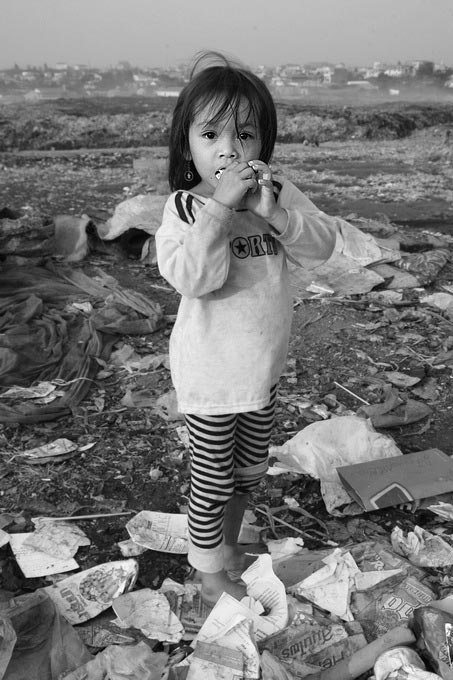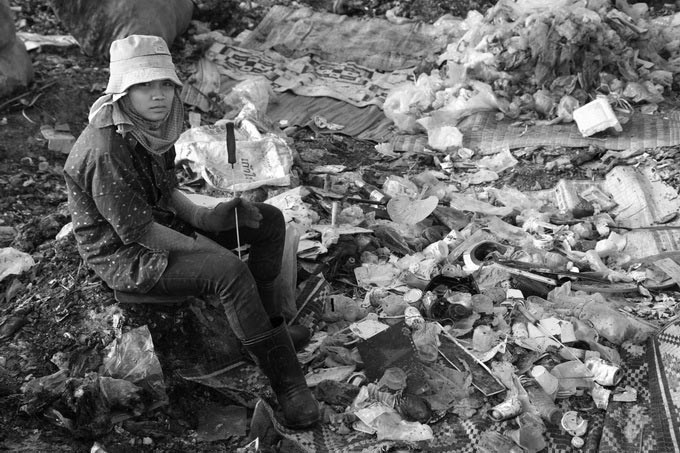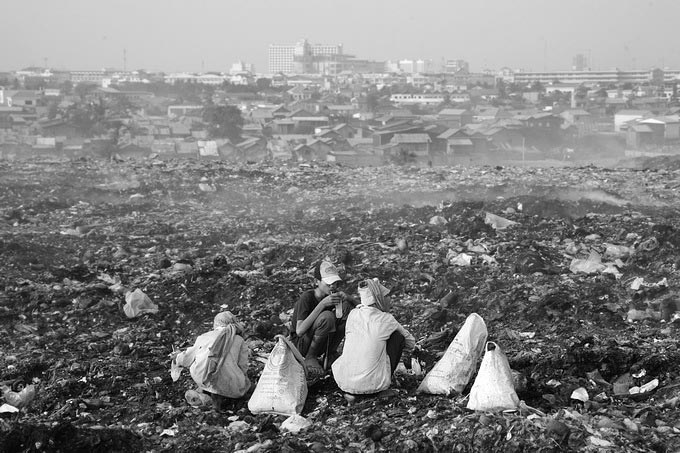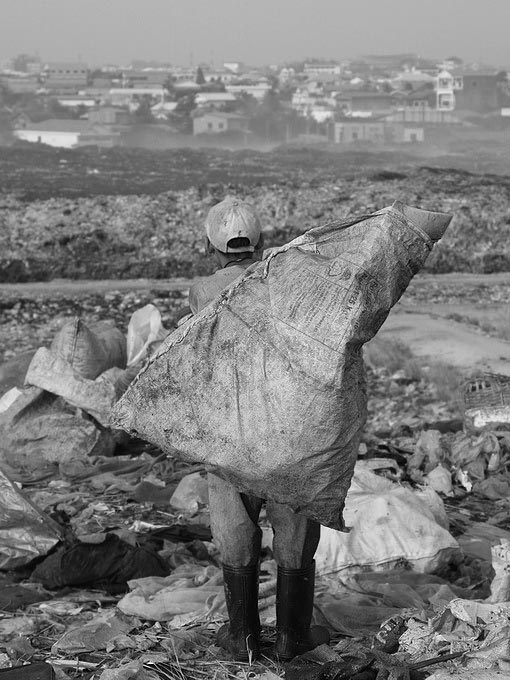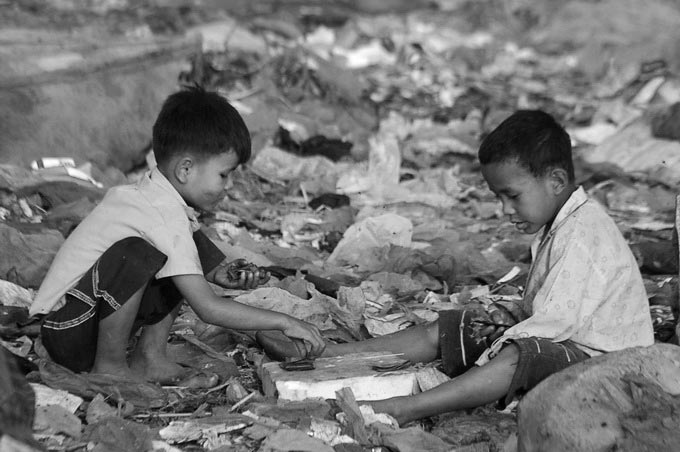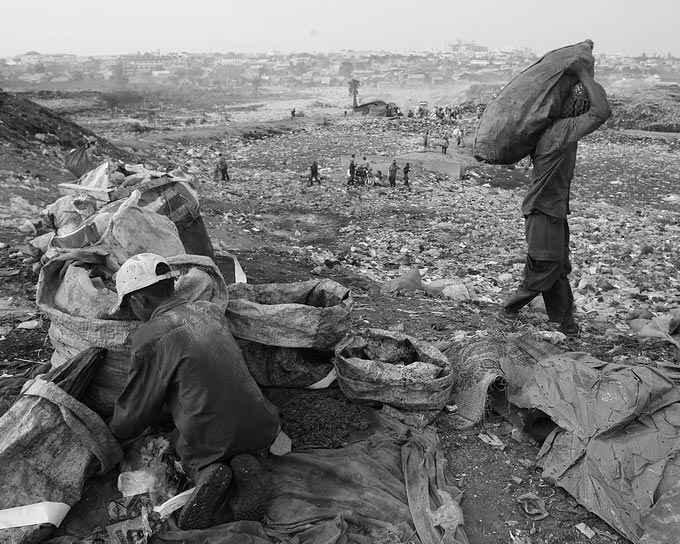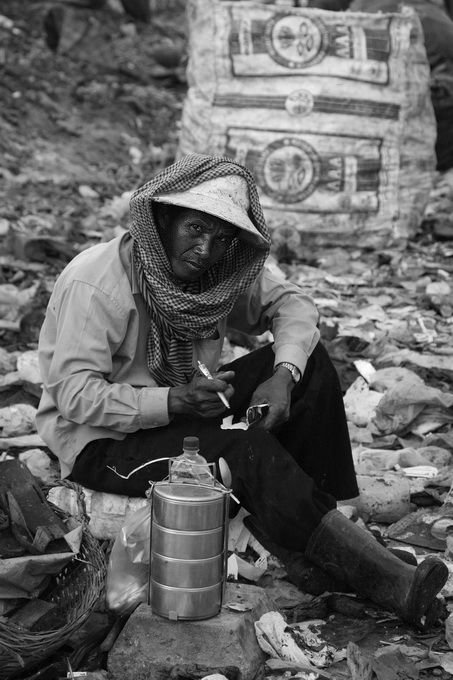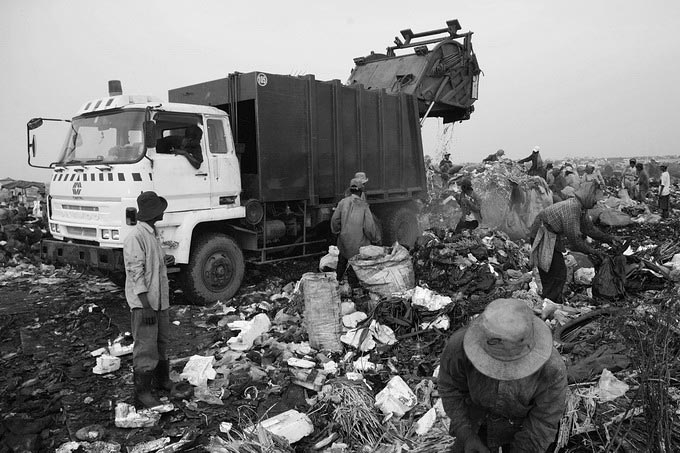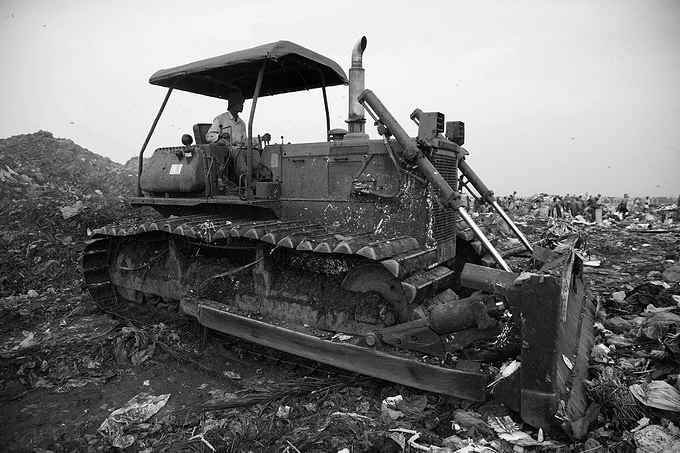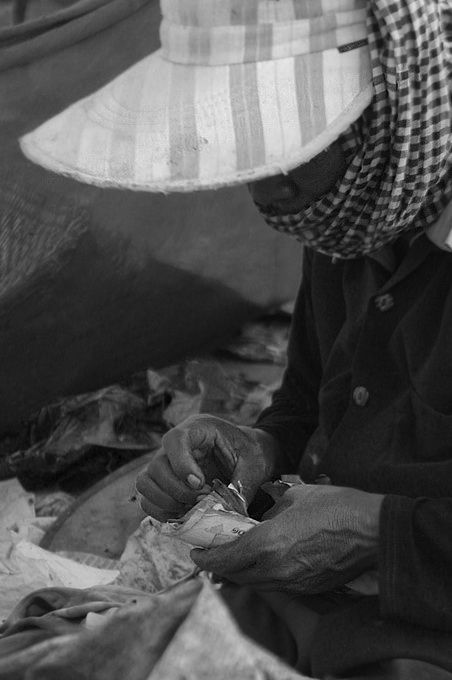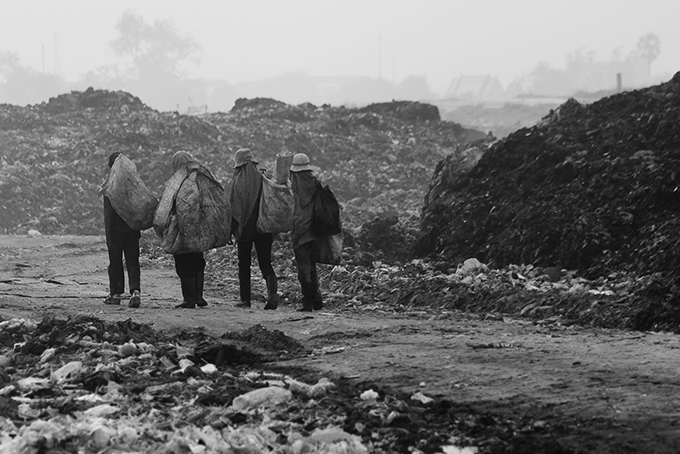Dump of Phnom Penh (Cambodia 2008)
When I heard that Khmers could be making more than the national average salary by routing through a local rubbish dump in Cambodia's capital Phenom Penh, I could hardly believe my ears. The very idea that anyone could make any money from such a place sounded bizarre, so I had to go there and see for myself.
The dump looked and smelt as bad as you might imagine, however the conditions didn't seem to bother the workers much and even I soon became accustomed to the environment. It was immediately obvious the workforce consisted of all generations - anyone old or young enough to walk was playing their part in what seemed to be an organised workforce. The economic reasons behind these peoples actions was instantly clear; separate the recyclable garbage from the rest and sell it onto a trader as raw materials, many of whom operated on the grounds. People were specialised in certain materials, some on glass, others on metals, plastics, etc. The most eager among them scurry around newly arrived trucks grabbing the more valuable materials before thy even hit the floor, while the rest trawl through the remainder of the site.
The dump operates like an ants-nest - a self-sufficient society with every individual concentrated on their allocated task, despite the dangers involved, they proceed because they have to in order to earn money to survive. I had heard of many accidents that had occurred, landslides of garbage burying people alive, injures from medical waste and hazardous materials, not to mention dangers of contracting disease from the unsanitary conditions, insects and bacteria that infest this place.
A supporting community had emerged to support these workers - people selling lemonade, and providing shelter to escape the midday sun. Some worked through the night to avoid the heat that could reach 40ºC and the dangers of large machinery that ground to a halt come nightfall.
To new eyes, this place must seem horrifying, but to these people it was their everyday lives. Many of the children working here had lost their parents to AIDS, landmines, drugs, or in Pol Pot's killing fields, but they still were able to find joy in every piece of worthless jewelry discovered, and played together as if in a school playground (once enough money was made to feed themselves for the day). Thanks to growing support from foreign charities, they might actually be playing at a school were they can learn in safety, free from the financial hold this place has over them.
I hope you enjoy the pictures as much I enjoyed being there to take them.
